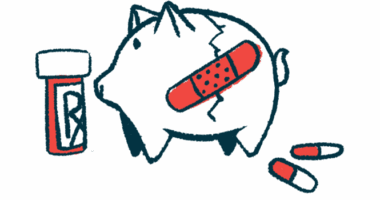European Commission Grants NTLA-2001 Gene-editing Therapy Orphan Drug Status

The European Commission (EC) has granted orphan drug status to Intellia Therapeutics’ NTLA-2001 gene-editing therapy for transthyretin amyloidosis (ATTR), a group of disorders that also encompasses familial amyloid polyneuropathy (FAP).
Orphan drug status comes with benefits designed to ease a potential medicine’s path to market.
“This news is a significant milestone for NTLA-2001 and the ATTR patient community,” John Leonard, MD, Intellia’s president and CEO, said in a press release.
“We are pleased that the EC recognizes the potential significant benefit of NTLA-2001 in the treatment of patients with this debilitating disease where there is no cure,” Leonard said.
“We look forward to advancing the global development of this genome editing product in collaboration with Regeneron,” he added.
Co-developed by Regeneron Pharmaceuticals, NTLA-2001 is an investigational gene-editing therapy given to patients intravenously (into the vein). It relies upon the CRISPR/Cas9 gene-editing technology, which allows specific sites within a gene’s DNA sequence to be added, removed, or altered.
Intellia designed NTLA-2001 to remove the TTR gene, which is faulty in patients with FAP, from their liver cells. Removal of the mutated TTR is expected to slow or prevent the tissue and organ damage associated with the buildup of protein deposits made up of transthyretin.
In addition to FAP, NTLA-2001 is being explored as a potential treatment for wild-type ATTR, a more common form of the disease that is not associated with any known genetic mutations, but also causes transthyretin deposits to accumulate and damage different tissues and organs.
The EC’s decision followed the initiation of a Phase 1 trial (NCT04601051) that is evaluating the safety, tolerability, and pharmacological properties of NTLA-2001 in adults with FAP.
The study, which is still recruiting participants in the U.K. and New Zealand, seeks to enroll approximately 38 patients, ages 18–80, who have no access to approved treatments, or whose disease continued to worsen despite treatment.
The first patient was dosed last year and interim data from the study is expected later this year.
The launch of this Phase 1 trial was supported by data from preclinical studies in non-human primates, which showed that a single dose of NTLA-2001 was able to lower TTR protein levels by more than 95% and keep them low for at least one year.
Orphan drug designation grants a drug maker several incentives to develop a candidate therapy that addresses an unmet medical need in a rare condition, for which no other satisfactory treatment exists. In the EU, these incentives include 10 years of market exclusivity should the medicine be approved, as well as assistance in designing trial protocols, streamlined regulatory procedures, and reduced regulatory fees.






